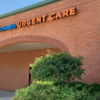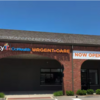
First Aid: What to Do if Someone Is Choking
Choking is a serious and potentially life-threatening emergency that can occur at any time and in any place....
Read moreHelp patients book appointments with you on Solv. It's free!
20 instant-book locations




















Help patients book appointments with you on Solv. It's free!
Anyone who is sexually active should consider getting tested for STDs, especially those with multiple partners or those who engage in unprotected sex. This includes individuals within the age range of 25-40 years old, who are most likely to contract an STD. According to the CDC, it's particularly important for pregnant women, men who have sex with men, and individuals with HIV to get tested regularly due to the increased health risks associated with STDs in these groups.
Getting tested for STDs is crucial for both individual and public health. Many STDs are asymptomatic, meaning they present no symptoms, but can still cause serious health complications if left untreated. Regular testing allows for early detection and treatment, reducing the risk of complications and preventing the spread of STDs to others. In addition, some STDs can increase the risk of contracting HIV, making regular testing even more vital.
Urgent care and walk-in clinics are excellent options for STD testing in St. Louis. Clinics such as Mercy-GoHealth Urgent Care offer highly rated services and have multiple locations across the city. These clinics offer same-day and next-day appointments, which can be conveniently booked through Solv’s website and mobile app.
Primary care providers are another reliable option for STD testing. They can provide comprehensive testing and follow-up care. If you have a primary care provider in St. Louis, consider discussing your STD testing needs with them.
For those with limited financial resources, free STD testing is available at various community health centers in St. Louis. These centers often operate on a sliding fee scale based on income, making testing accessible to all.
At-home testing kits offer a convenient and private option for STD testing. These kits can be ordered online, used at home, and then sent back to a lab for analysis. Results are typically available online within a few days.
According to the CDC, St. Louis has a higher prevalence of STDs compared to other cities in Missouri and the national average. The city has seen an upward trend in STD cases over the past few years, with chlamydia, gonorrhea, and syphilis being the most common. This high prevalence could be due to a variety of factors, including lack of access to healthcare, insufficient sex education, and social and economic disparities.
Several risk factors contribute to the high prevalence of STDs in St. Louis. These include high rates of poverty, limited access to healthcare services, and a lack of comprehensive sex education. Additionally, certain populations, such as young adults and men who have sex with men, are at a higher risk of contracting STDs. Addressing these risk factors is crucial in reducing the spread of STDs in the city.
Solv has strict sourcing guidelines and relies on peer-reviewed studies, academic research institutions, and medical associations. We avoid using tertiary references.
In a doctor's office, a health clinic, or an urgent care center, you can get an STD test. If you're experiencing symptoms, it's best to visit a doctor's office, where they can also treat you or issue you a prescription. While some St. Louis clinics and urgent care centers allow walk-in appointments, it's advisable to make an appointment ahead of time to prevent excessive waits.
Various testing are required for various STDs. Depending on the type of STD test you took, you may receive your results in two to ten days. Some outcomes may be immediately available. Your doctor may be able to diagnose an STD through a physical examination. In some cases, your doctor's office may only contact you if your test results are positive.
The cost of STD testing is governed by several factors, including where you are tested, the type of test you need, and if you have health insurance. Some St. Louis clinics may offer free testing or testing on a sliding scale based on your income. Because of the cost, don't put off obtaining an STD test. With your doctor's office, discuss the cost and payment choices. Delaying STD treatment may have catastrophic implications.
The cost of STD testing is governed by a number of factors, including the location of the test, the type of test required, and whether or not you have health insurance. Some clinics may provide free or sliding-scale testing, depending on your income. Don't let the expense of an STD test deter you from getting one. With your doctor's office, discuss the price and payment choices. Delaying STD treatment could have catastrophic ramifications.
There are around 20 different forms of STDs, each with its own set of diagnostic tests. No single test exists that can detect all types of STDs. Your doctor can help you figure out which tests you'll need. In STD testing, a blood sample or a urine sample may be used. Your doctor may also take a swab from the inside of your cheek, your vaginal area, or another potentially infected place.
Blood tests are used to diagnose hepatitis B, hepatitis C, herpes, HIV, and syphilis. In a laboratory, a technician examines a blood sample for antibodies that the body has produced in reaction to disease. The virus's DNA can also be detected by several blood tests. Remember that if you've recently been exposed to an STD and your body hasn't yet produced antibodies, you could test negative even if you have the disease.
Many St. Louis, MO urgent care providers offer same-day and next-day appointments, which you may book through Solv. To make healthcare more accessible to everyone, we collaborate with thousands of top-rated local providers. Our physician partners understand that waiting days, if not weeks, for an appointment isn't always the best option, and they share our commitment to simple, accessible health care.
To find a healthcare practitioner in your area, simply enter your location and search for "STD test" on our website. A list of providers and available appointments can be found on the following page. Choose the most convenient time and location for you. Make it clear that you've come for STD testing.
If you have a specific STD, inform your doctor so that the necessary test can be scheduled. Otherwise, they'll help you figure out which tests you'll need. The nurse or doctor simply needs a few minutes to get a blood sample, a urine sample, or a swab from the probable infection site.
Although there are several STD home tests available, not all of them are accurate. The accuracy of any STD test is determined by the quality of the sample taken. For home STD kits, a blood sample, a urine sample, or both are frequently required. Because doctors and nurses have more experience collecting samples, traditional in-office STD testing is the most accurate.
Chickenpox Vaccine in St. Louis
DOT Exam in St. Louis
Ear Wax Removal in St. Louis
Flu Shot in St. Louis
Hepatitis Vaccine in St. Louis
Measles Vaccine (MMR) in St. Louis
Physical Exam in St. Louis
Shingles Vaccine in St. Louis
Sports Physicals in St. Louis
Tetanus Shot in St. Louis
Typhoid Vaccine in St. Louis
Yellow Fever Vaccine in St. Louis
A1C Test in St. Louis
Allergy Testing in St. Louis
CMP Test in St. Louis
Diabetes Test in St. Louis
Diagnostic Test in St. Louis
Glucose Test in St. Louis
H Pylori Test in St. Louis
Hepatitis test in St. Louis
Lab Tests in St. Louis
Mono Test in St. Louis
Pregnancy Test in St. Louis
Pulmonary Function Test in St. Louis
RSV Test in St. Louis
STD Testing in St. Louis
Strep Test in St. Louis
TB Test in St. Louis
Thyroid Test in St. Louis
Vitamin D Test in St. Louis
Tips, advice, news—your resource to stay healthy and safe while improving your experience with healthcare providers when you need them.